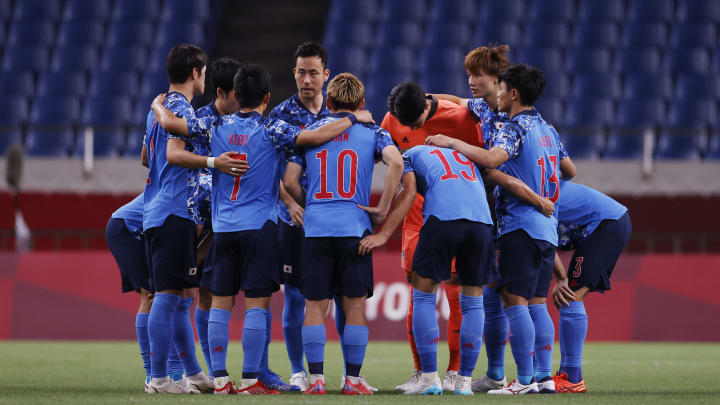Here's Why Men's Olympic Soccer Is an Under-23 Tournament

The 2024 Olympic Games are rapidly approaching as athletes finalize their preparations for Paris. Among the most intriguing sports at this year's event will be the men's soccer tournament, where new champions figure to be crowned after Brazil, gold medal winners at each of the last two Olympics, failed to qualify.
Unlike the women's soccer tournament at the Olympics, the men's soccer tournament will consist of nation's U-23 squads. That means that many of the world's biggest stars won't be competing, though there will be some exceptions as there are three slots available for players over the age of 23.
Why is Men's Olympic Soccer a U-23 Tournament?
The primary reason that men's Olympic soccer is a U-23 tournament is to mitigate competition for the FIFA World Cup. The World Cup has been the dominating men's international soccer competition since its inception, and FIFA wants to ensure that it remains uncontested in the top spot.
Additionally, clubs often don't permit their players to take part in both the Euros or Copa America as well as the Olympics, which is why there aren't many international stars filling the three available age 23+ spots on each roster.
An example of this is Kylian Mbappe, who stars for the host nation of France. Mbappe swapped domestic clubs from PSG to Real Madrid during the summer transfer window, and his new club barred him from participating in the 2024 Olympics, as he'd already played in the EURO and a full season in France.
The Olympics are not included in FIFA's international calendar, which requires players to be allowed to be made available for their national teams at certain windows throughout the season, namely major competitions or qualifiers.
There is some history of Olympic soccer being an amateur event, too. Back in the 1930s, soccer was not included in the 1932 Olympics, before returning in 1936 as an amateur competition. By the time it reverted back to a professional event, FIFA had already grown into a world renowned entity and the World Cup was the premier international soccer competition.
In the 1980s, European and South American teams were restricted from fielding professionals who participated in the World Cup, while other countries could bring their very best. That rule went to the wayside in 1992, when the U-23 rule came into place.
